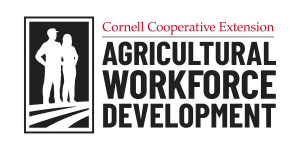New York Farm Bureau (NYFB) recently published an important notice about how federal regulations governing commercial vehicles driven for farms are interpreted. The NYFB message is re-posted completely below.
UPDATE: English Proficiency CMV Out-of-Service
On May 20, 2025, the Federal Motor Carrier Administration issued a memo on agency enforcement of English proficiency for Commercial Motor Vehicle (CMV) drivers. This memo clarified a long-standing regulation (in place prior to 2005) that states:
“a person is qualified to drive a motor vehicle if he/she…(2) Can read and speak the English language sufficiently to converse with the general public, to understand highway traffic signs and signals in the English language, to respond to official inquiries, and to make entries on reports and records;…” 49 CFR § 391.11(b)(2)
Pursuant to the regulation, a driver who cannot meet the requirements as outlined above is not qualified to operate a CMV in interstate commerce. This rule applies to all CMV drivers regardless of whether they are farmers, H-2A workers, other farmworkers, or for-hire drivers.
NYS does not delineate interstate and intrastate for the purposes of applying the safety regulations, which now includes this English proficiency out-of-service. Thus, while the federal guidance says this applies to interstate commerce, in New York, it will apply to all drivers because the state adopts the federal motor carrier safety regulations and the Commercial Vehicle Safety Alliance (CVSA) out-of-service criteria. In New York, this out-of-service will be applied to inter- and intrastate carriers.
This new procedure on placing drivers out-of-service for lack of English proficiency has been put out by the CVSA. CVSA is an organization made up of government and industry. The membership comes up with the criteria used in the U.S., Mexico, and Canada to place a driver or vehicle out of service. This promotes uniform application of the regulations and out-of-service criteria across the continent. You can read more about this directly from the CVSA, including guidance and information on the English language proficiency roadside assessment, here.
While farmers and their employees are granted many exemptions from certain CDL requirements in 49 CFR § 390.39 (e.g. controlled substance and alcohol use and testing, physical examinations, hours of service logs), there is no exemption for farmers or their employees, H2A or not, driving a covered farm vehicle from English proficiency requirements as cited above.
We understand this issue is of great concern to farmers. In response, NYFB and AFBF have met with USDOT to discuss this issue. We will continue to work with them.




 preparing and distributing a written employee handbook it’s important to follow through and implement policies consistently. You must also plan to update the handbook on a regular basis, at least annually, to make sure it is accurate and compliant with law. I’ve seen situations where an employer copied an old printed handbook for many years, unfortunately, legal changes in the course of time caused many of those written policies to be out of compliance with current law. The resources we provide can help you get started, but it’s always a good idea to have an employee handbook reviewed by appropriate legal counsel before putting it into effect.
preparing and distributing a written employee handbook it’s important to follow through and implement policies consistently. You must also plan to update the handbook on a regular basis, at least annually, to make sure it is accurate and compliant with law. I’ve seen situations where an employer copied an old printed handbook for many years, unfortunately, legal changes in the course of time caused many of those written policies to be out of compliance with current law. The resources we provide can help you get started, but it’s always a good idea to have an employee handbook reviewed by appropriate legal counsel before putting it into effect.